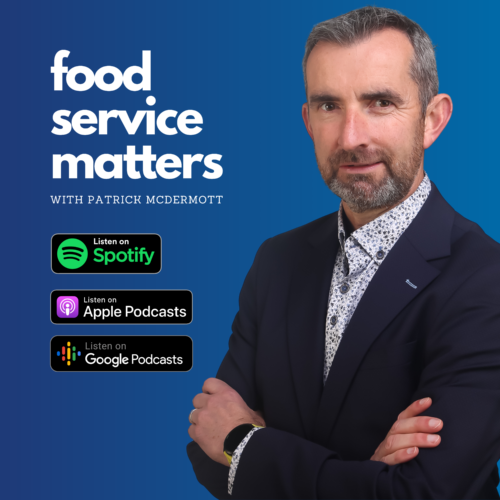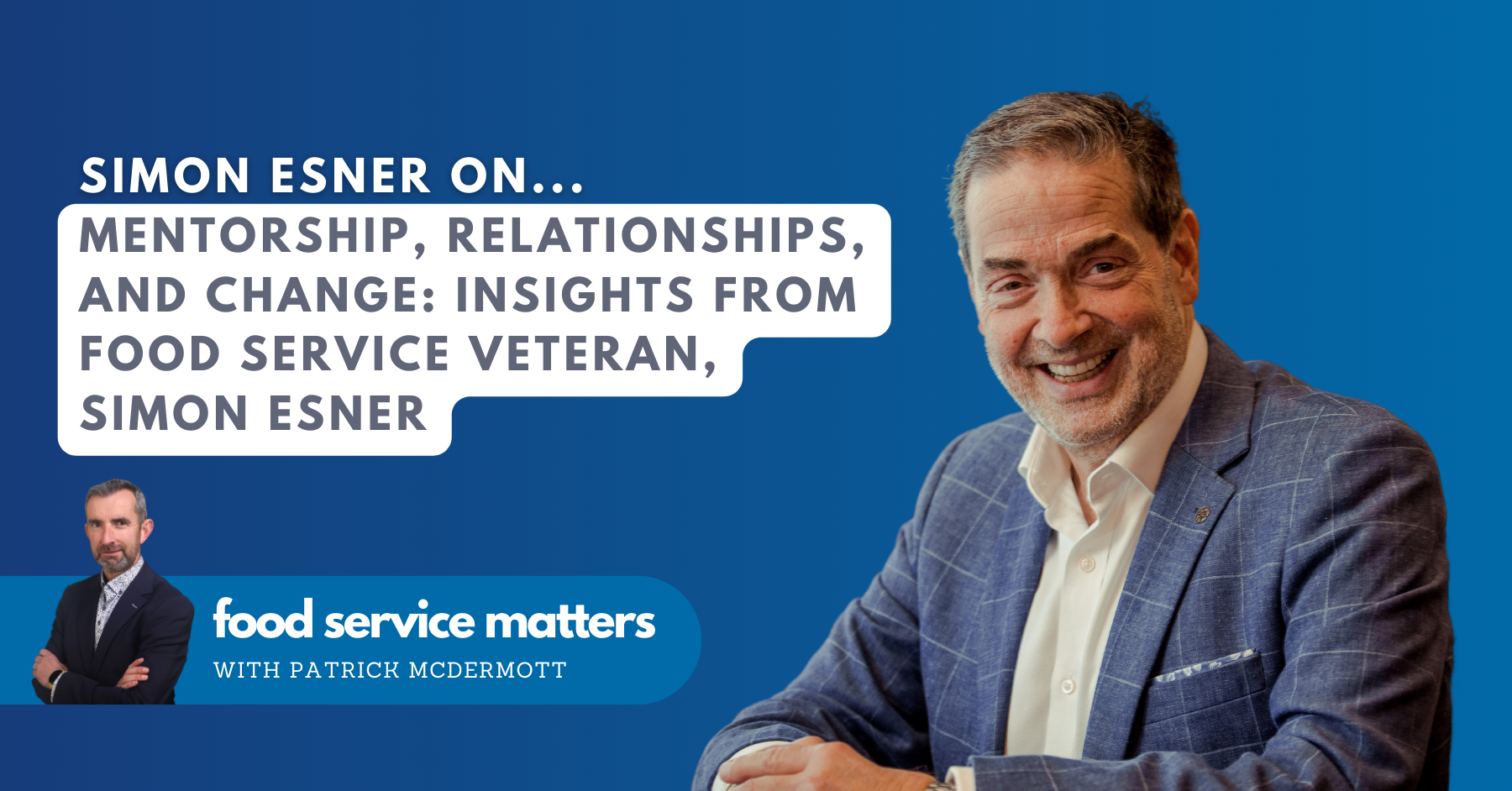In the latest episode of Food Service Matters, Season Two, Episode Eight, host Patrick McDermott interviews Simon Esner, a food service industry veteran with over 50 years’ experience. Simon’s remarkable journey—from kitchen porter to director of Westbury Street Holdings, a billion-pound business, and a trustee of Hospitality Action—is one marked by mentorship, adaptability, and a focus on relationship-building. His story offers valuable insights for food service professionals today.
The Role of Mentorship in Food Service Success
Simon attributes much of his career success to mentorship, sharing how each mentor he encountered brought unique insights that shaped his path. Early on, Simon’s mentor introduced him to the academic side of food service, guiding him through City and Guilds qualifications that grounded his practical experience in formal training. Another mentor provided foundational knowledge about food service contracts, subsidies, and management, preparing him for the business aspects of the industry.
His mentor Tim West at High Table took things further, showing him the ropes of business development. From there, Linda taught Simon about sales, customer retention, and, importantly, staff retention—a cornerstone of effective business management that ties into ongoing training and development. Finally, Alistair instilled a sense of direction, clarity, and drive, reinforcing the importance of a clear business vision.
For Simon, these mentors were more than teachers; they were instrumental in helping him become a well-rounded leader. “A 50-year career needs not just opportunity but clarity of direction,” he says. His experience underscores the importance of mentorship programs that guide employees and provide them with clear growth pathways within the food service industry.
Navigating Transformational Changes in Food Service
With five decades in food service, Simon has witnessed three main transformations that have reshaped the industry: technological advancements, enhanced workplace atmospheres, and the growing emphasis on sustainability (ESG).
- Technology – Simon highlights how innovations like AI and automated scanning in canteens are redefining food service. These advancements streamline operations, reduce human error, and improve customer experience. For Simon, technology is integral, but it must be balanced with the human touch to enhance the dining experience.
- Atmosphere – According to Simon, the atmosphere of a workplace plays a crucial role in employee retention and satisfaction. Modern food service settings are focusing on creating welcoming, safe environments that encourage staff to thrive and feel valued.
- Sustainability and ESG – Simon stresses the importance of sustainability as a driving force in food service today. Initiatives like reducing waste and sourcing locally align with ESG principles, which are increasingly valued by both customers and staff. This shift toward responsible practices is not only good for the planet but strengthens brand reputation and customer loyalty.
The Power of Relationships in Food Service
Throughout the episode, Simon returns to a central theme: the importance of relationships. His mentor, John Simons, once told him that the three most critical aspects of success are “relationship, relationship, relationship.” For Simon, these words ring true—building strong partnerships with staff, customers, and suppliers is fundamental to thriving in food service.
Patrick and Simon draw parallels to DigiTally’s philosophy of “partnership, partnership, partnership.” At its core, food service is a people-centered industry, and fostering these connections is key to sustainable growth and success.
Final Takeaways and Looking Forward
Simon’s insights resonate with Patrick, DigiTally’s CEO, and offer listeners a unique perspective on what it takes to build a lasting career in food service. “Simon’s story is a testament to the power of mentorship, adaptability, and relationship-building,” Patrick notes. “His experience reminds us that technology and sustainability are essential, but the human element—mentorship and connection—is irreplaceable.”
Listen to the full interview with Simon Esner on Food Service Matters for more valuable insights on career growth, mentorship, and the future of food service. To stay updated on industry trends and best practices, subscribe to the podcast on Spotify, Apple Podcasts, or Google Podcasts.
Patrick McDermott, DigiTally’s CEO, is a passionate advocate for simplifying food service management through technology. DigiTally’s user-friendly software helps food service businesses streamline operations, increase margins, and combat food waste. Are you ready to take your food service business to the next level? Let’s talk! Book a 30-minute call with Patrick today and set up your demo!




